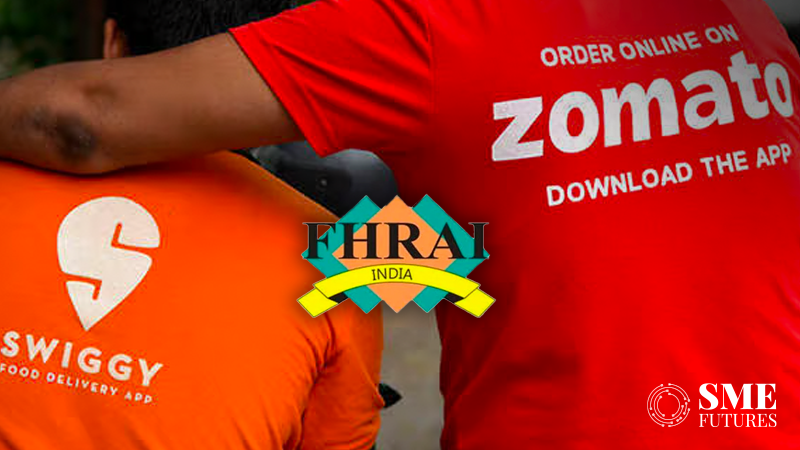The Federation of Hotel & Restaurant Associations of India (FHRAI) has expressed serious concerns over Zomato and Swiggy’s recent move to enter the private label food delivery business. The association points out several issues, including unfair competition, misuse of restaurant data, and potential risks to food safety.
Zomato and Swiggy are now using their market dominance to directly compete with the very businesses they were meant to support. FHRAI is set to meet with the Ministry of Commerce to discuss these concerns and push for regulatory action to ensure fair practices in the food service industry.
The aim of raising this issue is to address the growing concerns about the misuse of restaurant data by food delivery platforms and the unfair competitive advantage these platforms now hold over restaurants. By leveraging data from restaurants, such as customer preferences and sales trends, Zomato and Swiggy can create personalized deals that directly impact the restaurant’s business. This not only threatens the livelihoods of small and medium-sized restaurants but also raises questions about data privacy and consent.
Pradeep Shetty, Vice President of FHRAI, said, “We are meeting with the Commerce Ministry very soon and have requested an expedited appointment to discuss this serious issue. The actions of platforms like Zomato and Swiggy represent a direct violation of established e-commerce regulations,”
These companies were originally designed to function as neutral marketplace platforms, connecting consumers with restaurants, not as direct competitors. By introducing and selling their own food products, they undermine the very essence of a marketplace model, creating an uneven playing field that disproportionately harms restaurants. What is particularly alarming is the use of years’ worth of proprietary data collected from restaurants on customer preferences, order history, and sales trends to develop and promote their own branded products, he added.
Restaurants are excluded from access to this data, making it even more challenging for them to compete. This creates a dangerous environment for small and medium-sized enterprises and raises significant ethical and legal concerns around the misuse of sensitive data.
“Additionally, there are serious questions surrounding the food safety standards applied to these private label products. While restaurants are subject to stringent safety regulations, there is no transparency regarding whether the same standards are being enforced for products sold by these platforms. The lack of fairness and a level playing field exacerbates the challenges faced by our members, making it difficult for them to survive, let alone thrive, in this competitive landscape. This not only risks consumer trust but also threatens the reputation of the entire restaurant industry.” he further added.
Zomato and Swiggy, which initially operated as platforms connecting restaurants with customers, have now ventured into the quick commerce space by creating their own private label food products. These platforms use restaurant data to create personalised offers and discounts, which in turn puts restaurants at a disadvantage, as they are essentially competing with their own information. The lack of clear regulations around the production and sale of these private label products raises concerns about the safety and quality of food being delivered to consumers.
With this move, the platforms are now not only controlling the distribution of food but also the creation and sale of it, which could lead to monopolistic practices. FHRAI stresses that the food service industry needs to be regulated in a way that ensures a level playing field for all stakeholders whether they are restaurants, food delivery platforms, or consumers. It is essential that these platforms operate transparently, ensure proper consent for the use of restaurant data, and comply with the food safety standards expected from all food providers.
FHRAI aims to push for the establishment of clear and enforceable guidelines to protect restaurant data and ensure that private label food products sold by platforms like Zomato and Swiggy adhere to the same food safety and quality standards required for restaurant food. FHRAI seeks to ensure a fair, transparent, and competitive environment in the food service industry, where both restaurants and consumers are protected. The association urges regulators to take swift action to address the growing concerns related to data misuse, unfair competition, and food safety in the wake of these new developments in the food delivery market.











